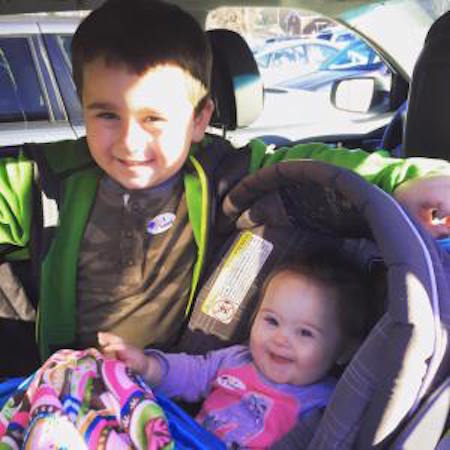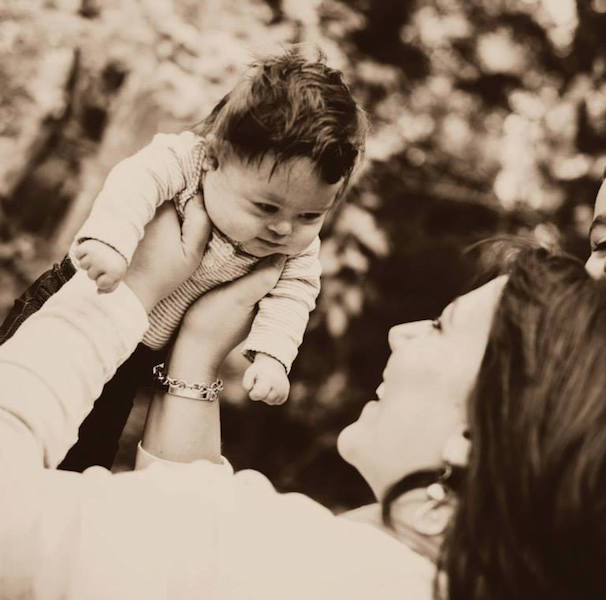I am not a political person, but I do make sure to exercise my right to vote.
Back in grade school, we had a mock presidential election. We were all able to vote for our favorite candidate and the winner was announced over the PA system. I imagine this was to help us understand the concept of a democracy and the importance of voting. We were kids, so we really did not have a true understanding of politics or the repercussions of the policy changes being promised by either party. Essentially, we were voting for whoever our parents or friends were voting for. As we grew up, we started to form our own opinions and interests and that influenced your party choice or the candidate you supported.
Now, I am an adult. I go to work, I pay taxes and I am raising two little people, one of whom has special needs. Have my initial political views changed? You bet.

I am now less concerned with party loyalty and more concerned with finding a candidate that’s building a better world with my tax dollars. My ideal candidate would make policy changes to make the United States safer for my kids, someone who creates opportunities for Ethan and Elisa rather than challenges.
Unfortunately, I don’t see anyone fitting my description in this year’s coming election.
While I sit at home and watch the news, I see candidates pitching tax increases and decreases, plans for national security, plans for social security. I’ve watched candidates lobby for votes from Texas, votes from women, votes from minorities. It seems they all think they are the best matched for particular constituencies. Now, as the mother of a child with Down syndrome, my political priorities are changing again: Who is going to be the best advocate for my daughter? And do any of these people even recognize my daughter as an important constituent?
Rarely do you hear a candidate talking about the disabled community, addressing their needs and talking about expanding their services. With Ohio’s primary looming, I got onto the Internet to find out what the candidates are saying about their stances on the disabled community. I am hard pressed to find much. I found my observation was not alone; journalist Annamarya Scaccia’s piece for the New Republic in January, “The 2016 Candidates Need to Stop Ignoring the Disability Vote,” echoes my thoughts:
“How candidates talk about disability on the campaign trail signals where their values stand — and what they might do if elected to the country’s highest office. Last election cycle, [RespectAbilityUSA CEO Jennifer Laszlo Mizrahi] said, people with disabilities were “totally ignored.” The current crop of candidates has a chance to change that.”
According to a study of the 2012 election completed by Rutgers and Syracuse Universities, over 15.6 million people with disabilities voted in that year’s presidential race. At least 3 million additional people with disabilities registered but didn’t vote. In 2012, the disability vote represented more than 18 million people. If I were a candidate, I’d think those votes might be worth mentioning in my campaign.
I know, I know — we are up against big issues as a country right now. Presidential candidates — and candidates for state and local offices — cannot mention every special interest group. I recognize that. I am, however, alarmed by the trend I am seeing on both the national and state level when it comes to funding.
Down syndrome is the most common chromosomal condition diagnosed in the United States. Each year, approximately 6,000 babies are born in the United States with Down syndrome, meaning Down syndrome occurs in about 1 out of every 700 babies. Yet its funding continues to be cut — currently it is among the least funded genetic conditions by the National Institutes of Health.
This presents a disconnect to me that I struggle to justify or explain.
As a parent, I am lucky. There are more resources available than ever before to help my daughter succeed. Unfortunately, not all children have parents who are able to commit to providing this attention or these resources. We are doing what we can to help her develop into a smart, independent young lady. If my daughter needs assistance with employment or housing down the road, I fear the programs that exist today may not be in place to help her if this funding trend continues. We have not yet begun to navigate schools, but I am worried by the policy changes that are being made at the state level, the lack of supervision of special education classrooms and inconsistent inclusion policies from district to district. If our lawmakers are not concerned with such issues during their campaigns, their time to shine and court us, do you think these issues will emerge once elected?
I am not sure who will get my vote come March 15, but I do know I am concerned for my daughter and her community. I worry for other people with disabilities who might not have access to the resources they need to have a good quality of life. For this week, however, I am mostly worried that the wrong people will be given the opportunity to be elected to our great nation, and when given the chance to change the world, it may not be for the better.

A version of this post first appeared on Down Right Happy.
The Mighty is asking the following: Share with us the moment you stood up for yourself or your child in regards to disability or disease, or a moment you wish you had? If you’d like to participate, please send a blog post to community@themighty.com. Please include a photo for the piece, a photo of yourself and 1-2 sentence bio. Check out our Submit a Story page for more about our submission guidelines.
Have you seen the first film with a national release to star a person with Down syndrome? Check out the film “Where Hope Grows” today!
